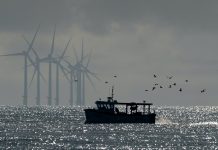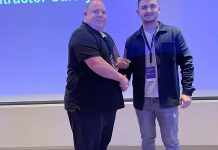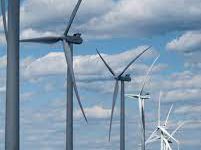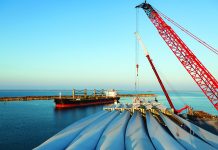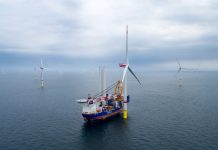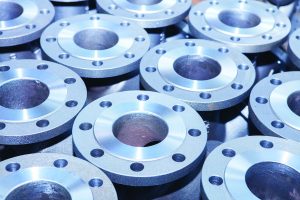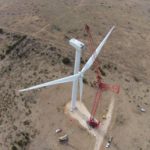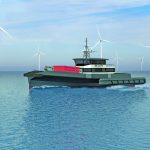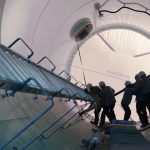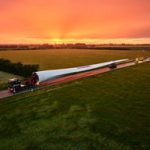Founded in 1967 as a hydraulic repair company specializing in the repair of servo valves, PSI Repair Services, Inc. has evolved into supporting production machinery in military, aerospace, and steel operations, as well as supporting the wind energy industry.
William Phillips, a mechanical engineer by trade and veteran of the U.S. Air Force, founded the parent company, Phillips Service Industries, 48 years ago with every intention to sell test stands for hydraulic servo valves in the aerospace industry. However, according to John Greulich, the director of sales at PSI Repair Services, things didn’t go as planned.
“He went out of business in that endeavor because no one wanted to buy his test stands, but the people and companies he did pursue expressed to him how tired they were of always having to buy new hydraulic servo valves,” Greulich said. “They would say, ‘These things keep breaking, and the OEM says it’ll be another thousand dollars per copy,’ which wasn’t in their budgets.”
As the story goes, Phillips brought a box of servo valves into his home garage and collaborated with a friend who was also involved in this field. They took the servo valve apart and discovered that inside it was a small electric motor along with a directional needle called an AFSA that was developing flat spots.
Phillips and his friend realized that if the electric motor is damaged, they could fix it, and if the needle is bad, they could fix that, too; or if it’s contaminated, they could clean and calibrate it. That’s when the light came on — there was a repairable item and a demand for those repair services. Then, Phillips quoted his services to one of the aerospace companies he had come across in his sales days, and they gave him a purchase order. He was in business.
 What started in a garage blossomed into a growing enterprise with several subsidiaries comprised of high-tech manufacturing companies, including PSI Repair Services located in Livonia, Michigan, in a 190,000-square-foot campus. The company supports businesses in the U.S., Canada, and Mexico, and it also has representatives in Europe, Asia, and India. All of their customers’ parts are shipped to and out of the campus in Livonia where they are repaired on-site. Its services include repair, remanufacturing, upgrading, and root cause analysis (RCA), as well as isolating hard failures and studying parts that have been impacted by the operation they perform in the wind turbine.
What started in a garage blossomed into a growing enterprise with several subsidiaries comprised of high-tech manufacturing companies, including PSI Repair Services located in Livonia, Michigan, in a 190,000-square-foot campus. The company supports businesses in the U.S., Canada, and Mexico, and it also has representatives in Europe, Asia, and India. All of their customers’ parts are shipped to and out of the campus in Livonia where they are repaired on-site. Its services include repair, remanufacturing, upgrading, and root cause analysis (RCA), as well as isolating hard failures and studying parts that have been impacted by the operation they perform in the wind turbine.
This growth led PSI Repair Services to the wind energy industry where it has flourished for the past 10 years.
According to Greulich, the majority of what the company does in the wind industry is related to electronic components such as circuit boards, power supply, inverters, converters, high-power matrixes, IGBTs, or insulated gate bipolar transistors, which are essentially high-powered switches, commonly found in automobiles where they’re used in remote starters and keyless entry systems. They’re also found in wind turbines where they control different pitches and levels of power.
“It surprised me when we got into this because some of the electronics and sophistication in a wind turbine is as advanced as you’d find in weapons systems in the military,” Greulich said.
PSI Repair Services also works with mechanical components such as motors and valves that, along with the electrical parts, suffer trauma inside of the turbine.
Heat is a big enemy of electronics. Whether they’re up-tower or in the nacelle, it’s hot. That heat creates problems for the electronic circuitry. These electronics also suffer from what Greulich calls “dirty power,” such as surges or ripple currents that can cause the components to explode.
“When we get some of these things in, sometimes it’s just a black, charred lump of what it used to be,” Greulich said. “It’s heat, shock, and vibration.”
Greulich also said failures in these components also pose dangers to the wind techs who have to climb up the tower to retrieve the damaged part from the nacelle.
“The turbines also sway several feet back and forth upwards of 300 feet off the ground,” Greulich said. “If a pitch drive failed, for example, a technician would have to cart the 45- to 50-pound part up and down the tower. Also, the turbine isn’t working at that point in time, so revenue is being lost from no power generation. It’s not like going into an industrial factory where if you have a board fail in the machine tool, you walk over to the storeroom, take the bad one out, and put the new one in. It’s a whole different dynamic in wind.
“Our customers want to know what they can do to prevent situations like that, or at least improve the mean time between failures. That’s what we focus on with our engineering services group.”
Improving the mean time between failures is one of PSI Repair Services’ many areas of expertise. One example of how the company was able to do this involves a pitch drive from a large turbine OEM, and it’s what Greulich calls one of their biggest success stories to date.
 “The customer came to us to improve a component that was failing at a very high rate,” Greulich said. “They would go back to the manufacturer, who would say this thing is destroyed and tell them to buy a new one. They got tired of that, so they called us and asked if we could help them with that pitch drive. They sent us approximately 25 failed units to dissect and perform root-cause analyses on.
“The customer came to us to improve a component that was failing at a very high rate,” Greulich said. “They would go back to the manufacturer, who would say this thing is destroyed and tell them to buy a new one. They got tired of that, so they called us and asked if we could help them with that pitch drive. They sent us approximately 25 failed units to dissect and perform root-cause analyses on.
“Through RCA, we found that the capacitors and switching transistors were not robust enough to withstand the ripple current in the application. We installed a higher grade of capacitors, redesigned the bus board, and selected switching transistors that better matched the 18,000-per-second switching frequency. As a result, the drive ran cooler and our customer realized an 81-percent reduction in failures. We also improved the board that all of this is mounted to by adding more copper that pulls away more heat.”
According to Greulich, the wind industry is at a point where it can focus on improving turbine reliability, and PSI Repair Services is poised to perform those repairs.
“The OEM promised a 20-year life, but users are having failures in fractions of that time, and the customer still has this large installed base and a tight budget,” Greulich said. “We provide end-of-life analysis on numerous electronic components. Constantly improving technologies result in components becoming obsolete as manufacturers discontinue support. OEMs integrate a wide range of manufacturers’ assemblies into their controls. We have been able to bridge the gap when manufacturers are not meeting the customer’s expectations.”
Greulich also said that the company’s role in the industry is stronger now than ever, and he expects that to continue for years to come.
“Going forward, I see the industry improving the design of turbines and continuing to improve the support of existing turbines. OEMs are getting involved with improving their originally designed turbines to run faster and better. Once the OEM warranty expires, that’s where we step in because the customer would like to have choices. There is a large population of aged turbines these days. As they get older, they’re going to need service experts to continue to help support them. The turbines can’t stop running, and we will be here ready to help.”
For more information, go to www.psi-repair.com.




